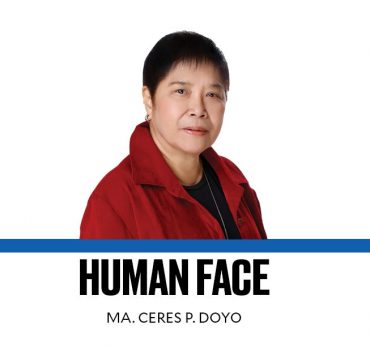Glad tidings times three

Good things come in threes, with recent government initiatives seemingly tripling the glad tidings of the season.
Early this week, Health Secretary Teodoro Herbosa said that, effective immediately, purchase booklets are no longer required for senior citizens to avail of the 20-percent discount on medicines. They only need a doctor’s prescription and a valid government ID indicating that they are at least 60 years old for drugstores to honor this seniors’ privilege.
The Department of Health (DOH) also announced this month that, starting in 2025, it will provide free human papillomavirus (HPV) vaccines to all 9-year-old girls after the government approved funding for the vaccine, which helps protect women from cervical cancer.
Meanwhile, the Civil Service Commission (CSC) has released a memorandum circular allowing government workers and officials to wear appropriate office attire aligned with their sexual orientation, gender identity, and gender expression. The directive is meant to address gender discrimination in the workplace and improve employee engagement.
Undue burden
The DOH’s Administrative Order No. 2024-0017 will make it consistent with Republic Act No. 9994, or the Expanded Senior Citizens Act of 2010, which does not require seniors to present a purchase booklet to be entitled to the 20-percent discount on medicines, on top of the exemption from the 12-percent value-added tax on these products.
The order will spare seniors “undue burden and difficulties,” Herbosa said, noting that it is not uncommon for seniors to forget or misplace their discount booklet. The revised policy will benefit more than 9.2 million Filipino senior citizens, based on the latest 2020 census by the Philippine Statistics Authority.
While a drug association official has expressed fears that the new policy could be open to abuse without the requisite purchase booklet used to indicate the number of medicines bought and the still unfilled balance, the health official said such information may be written directly on the doctor’s prescription.
Pharmacies can also go digital, as the National Commission of Senior Citizens has suggested, with the Department of Information and Communications Technology helping develop a centralized database for senior citizens to record their medicine purchases.
HVP protection
As for the HPV vaccine, the DOH said it was targeting over 900,000 Grade 4 students in select public schools to receive two doses of the HPV vaccine that costs P4,000 each dose.
A total of 505,010 Grade 4 female students nationwide, or 64.48 percent of the total target population, have already received the vaccine as of Dec. 13, the DOH said.
The vaccine, which offers protection for more than 18 years, protects against the HPV, which can cause genital warts and certain types of cancer like cervical, anal, vulvar, vaginal, penile, and oropharyngeal (throat) cancers.
According to the United Nations Children’s Fund (Unicef), the vaccine is recommended for those 9 to 26 years old. Both boys and girls can be infected with HPV, the most common sexually transmitted infection in the world. About 80 percent of women and men will be infected with HPV at least once during their lifetime especially if they did not get the HPV vaccine, Unicef added.
HPV is mostly transmitted through sexual activity and any intimate contact, such as vaginal, oral or anal sexual intercourse, or through skin-to-skin contact even without any sexual intercourse.
Sogie bill
The CSC directive on the dress code, meanwhile, serves as a makeshift measure, a convenient alternative to the Sogie or the sexual orientation, gender identity, and gender expression bill that has been in congressional limbo for over 20 years.
The bill, which aims to protect people from discrimination and provide them equal opportunities regardless of their gender identity, has stalled indefinitely despite having passed the House of Representatives committee on women, children, family relations, and gender equality in May 2023.
Certain restrictions, however, remain in place under the memorandum, including prohibitions on sleeveless tops, ripped jeans, and excessively revealing clothing. Violations of the dress code could result in disciplinary action.
While the LGBT community has gained great strides in recent years, with more countries now legalizing same-sex marriage, the CSC memo is a surprising but welcome acknowledgment that gender expression should be accepted and normalized in the workplace, including through one’s office attire. It is now up to the LGBT community to show that such leeway won’t interfere with the performance of their job and in maintaining professionalism in government offices. Having overcome so many difficulties previously, they should have no problem with such expectations.
Hopefully, these notable initiatives would set the tone in concretizing government response to problems that ordinary folk face, beyond mere promises expected in the coming campaign season.





















